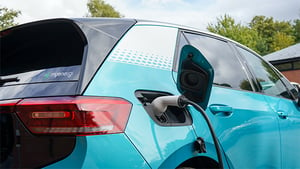
Check the Vehicle History Report for Previously Owned Vehicle Credit
To be eligible for the previously owned clean vehicle credit, a vehicle sale must be the first transfer of the vehicle after August 16, 2022, to a person who was not the original owner of the vehicle.
PARTNER SPOTLIGHT
Dealer Management System, Computer Technology, Media/Advertising, Automotive Auction, F & I/Aftermarket Products, Automotive Technology Training & Compliance
 A NHADA Gold PARTNER
A NHADA Gold PARTNERComputer Technology, Automotive Shop Equipment, Environmental Services
 A NHADA Platinum PARTNER
A NHADA Platinum PARTNERF & I/Aftermarket Products, Automotive Technology Training & Compliance, Environmental Services
.png?width=150&name=corp_logo_horz_on_light_with_trademark_symbol_1200w%20(002).png) A NHADA Diamond PARTNER
A NHADA Diamond PARTNERF & I/Aftermarket Products, Financial Services, Automotive Technology Training & Compliance
 A NHADA Diamond PARTNER
A NHADA Diamond PARTNERIRS Energy Credits Online provides real-time information about whether a manufacturer has reported a vehicle identification number (VIN) as eligible. For previously owned clean vehicles, dealers must review a vehicle history report to determine whether it is the first transfer of the vehicle regardless of whether a credit was previously taken or not for the used vehicle.
Dealers must make an attestation regarding the vehicle’s eligibility based on their review of the vehicle history report when submitting a time-of-sale report in IRS Energy Credits Online.
If a dealer fails to check a vehicle history report and the taxpayer makes an election to transfer the credit to the dealer and the dealer receives an advance payment, that payment needs to be repaid if the vehicle does not meet the first transfer rule and qualify for the previously owned clean vehicle credit.
Buyers and dealers are advised to keep a copy of the vehicle history report as of the date of sale in their records. Dealers do not need to confirm if a tax credit has already been claimed on the previously owned clean vehicle and the vehicle history report will not provide this information.
However, to promote compliance, failure to check vehicle history reports could result in the dealer’s ability to receive advance payments being suspended or revoked.
The original owner’s initial purchase, their subsequent sale of the vehicle to a dealer, or subsequent transfer from one dealer to another does not negate the vehicle’s eligibility for the credit under the first transfer rule.
Other transfers of the vehicle after August 16, 2022, reflected on the vehicle history report, including any sales among private parties, result in the VIN not being eligible for the previously owned clean vehicle credit even if IRS Energy Credits Online will accept a time-of-sale report for that VIN.
More information is available at IRS.gov/CleanVehicles, on the Used Clean Vehicle Credit webpage, and in our Frequently Asked Questions about the New, Previously Owned, and Qualified Commercial Clean Vehicles Credit.
Source: IRS e-News for Clean Vehicle Industry (e-newsletter)


















.png?width=150&name=Ally_Final%20Logos%20and%20Pairings_11.14.2018-01%20(2).png)


-2.png?width=150&name=Wipfli%20Logo%20Blue%20RGB%20(1)-2.png)


.jpg?width=150&name=NHADA_Partner_FTR_Img_NHADA_Insurance%20(1).jpg)


.jpg?width=150&name=NHADA_Partner_FTR_Img_JMA(1).jpg)





